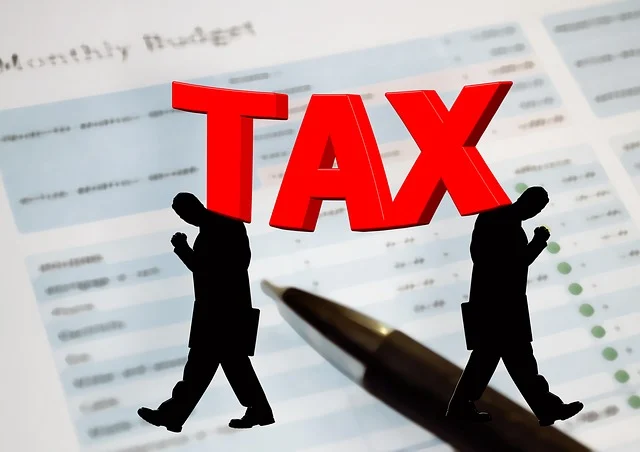How the Belgian Tax System Works: A Comprehensive Guide

Belgium’s tax system is known for being relatively high compared to many other countries, reflecting the country’s robust social welfare programs, healthcare system, and public infrastructure. Understanding how taxes work in Belgium is essential whether you’re a resident, expat, or business owner. Below is an in-depth guide to help you navigate the intricacies of the Belgian tax system.
1. Types of Taxes in Belgium
The Belgian tax system encompasses several types of taxes, each serving a specific purpose:
A. Income Tax
Income tax is levied on all earnings, including salaries, pensions, rental income, and investments. It operates on a progressive scale, meaning higher earners pay a larger percentage of their income in taxes.
- Tax Rates (2023) :
- Up to €13,960: 25%
- €13,961–€24,840: 40%
- €24,841–€42,370: 45%
- Over €42,370: 50%
- Additional Municipal Taxes : Local authorities add municipal surcharges to the national income tax rate, typically ranging from 0% to 9%.
- Social Security Contributions : Employees contribute around 13.07% of their gross salary, while employers pay approximately 30–40%. These contributions fund pensions, unemployment benefits, and healthcare.
B. Value-Added Tax (VAT)
VAT is applied to most goods and services in Belgium:
- Standard rate: 21%
- Reduced rates: 12% (e.g., restaurants, certain food items) and 6% (e.g., books, pharmaceuticals).
C. Corporate Tax
Companies operating in Belgium are subject to corporate tax on their profits:
- Standard rate: 25% (as of 2023).
- Small businesses with taxable profits below €100,000 benefit from a reduced rate of 20%.
D. Wealth Tax
Belgium does not impose a general wealth tax, but inheritance and gift taxes apply. Rates vary by region (Flanders, Wallonia, Brussels) and depend on the relationship between the donor and recipient.
E. Property Taxes
- Registration Duties : Paid when purchasing real estate, typically 10–12.5% of the property value.
- Annual Property Tax : Levied by municipalities, usually a small percentage of the property’s cadastral income.
F. Environmental Taxes
Belgium imposes taxes on environmentally harmful activities, such as vehicle registration fees based on CO2 emissions and energy consumption taxes.
2. Who Pays Taxes in Belgium?
Tax obligations depend on your residency status:
A. Tax Residents
You’re considered a tax resident if:
- You live in Belgium for more than 183 days per year.
- Your primary residence or center of economic interests is in Belgium.
Tax residents must declare their worldwide income, regardless of where it’s earned.
B. Non-Residents
Non-residents only pay taxes on income generated within Belgium, such as wages from a Belgian employer or rental income from Belgian property.
3. Filing Your Tax Return
Belgian tax residents are required to file an annual tax return. Here’s what you need to know:
A. Deadlines
- The deadline for filing is typically June 30 of the year following the tax year.
- Extensions may be granted under special circumstances.
B. Documents Needed
- Form 281.10: Provided by your employer, detailing your income and taxes withheld.
- Proof of deductions (e.g., mortgage interest, childcare expenses).
- Statements for additional income sources (e.g., dividends, rental income).
C. Online Filing
Belgium encourages electronic filing through the Tax-on-Web platform, which simplifies the process and reduces errors.
4. Deductions and Allowances
Belgium offers various deductions and allowances to reduce taxable income:
A. Personal Allowance
Each taxpayer receives a basic personal allowance, reducing taxable income.
B. Family Allowances
Dependent children qualify for tax credits. Additional allowances are available for single parents or disabled dependents.
C. Mortgage Interest
Interest paid on loans for primary residences is deductible up to a maximum amount.
D. Pension Savings
Contributions to pension savings plans are tax-deductible, subject to limits.
E. Professional Expenses
Employees can claim a flat-rate deduction of 30% of their professional income (capped at €4,630) or provide detailed expense reports.
5. Regional Variations
Belgium’s federal structure means that some taxes vary by region:
- Flanders, Wallonia, and Brussels-Capital Region have autonomy over certain taxes, such as inheritance and property taxes.
- For example, inheritance tax rates differ significantly across regions, with Brussels often having higher rates than Flanders.
6. Double Taxation Treaties
Belgium has agreements with over 100 countries to prevent double taxation. If you earn income abroad, consult these treaties to determine your tax liabilities.
7. Social Security Contributions
Social security is a cornerstone of the Belgian tax system, funding healthcare, pensions, and unemployment benefits:
- Employees contribute around 13.07% of their gross salary.
- Employers contribute an additional 30–40%, depending on the sector and employee profile.
Self-employed individuals also pay social security contributions, calculated based on their income.
8. Tips for Managing Taxes in Belgium
Here are some practical tips to optimize your tax situation:
- Hire a Tax Advisor : Given the complexity of the system, consulting a professional can save time and ensure compliance.
- Keep Records : Maintain thorough documentation of income, expenses, and deductions.
- Plan Ahead : Take advantage of tax-efficient savings vehicles, such as pension plans or life insurance policies.
- Understand Regional Differences : Be aware of how regional tax rules might impact your financial planning.
9. Challenges of the Belgian Tax System
While Belgium’s tax system supports its generous welfare state, it comes with challenges:
- High Tax Burden : Belgium consistently ranks among countries with the highest tax-to-GDP ratios.
- Complexity : Navigating the system requires patience and expertise due to numerous regulations and regional variations.
- Compliance Costs : Businesses and individuals may face significant administrative burdens.



